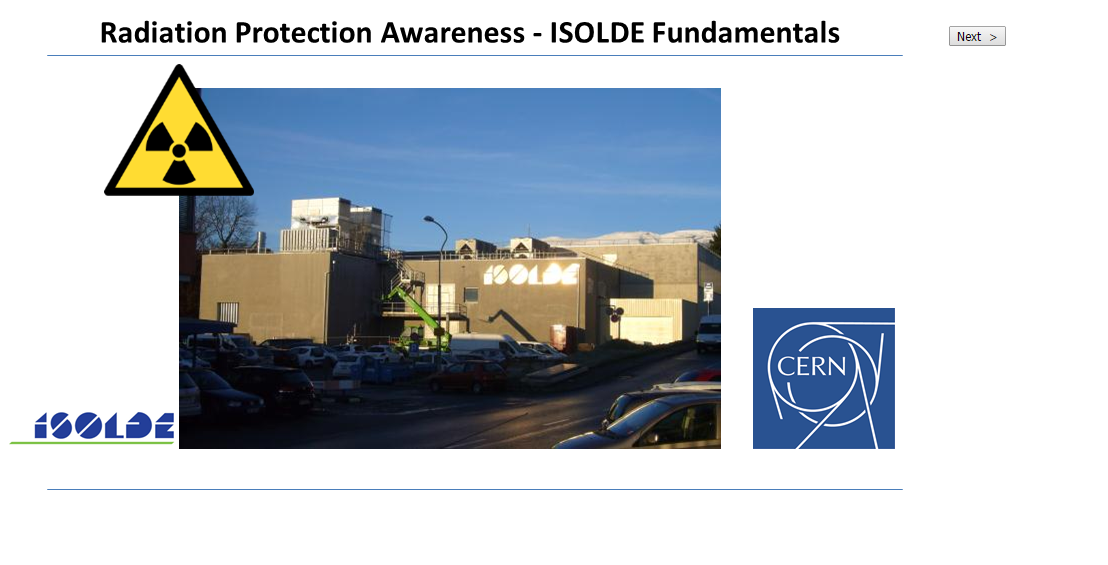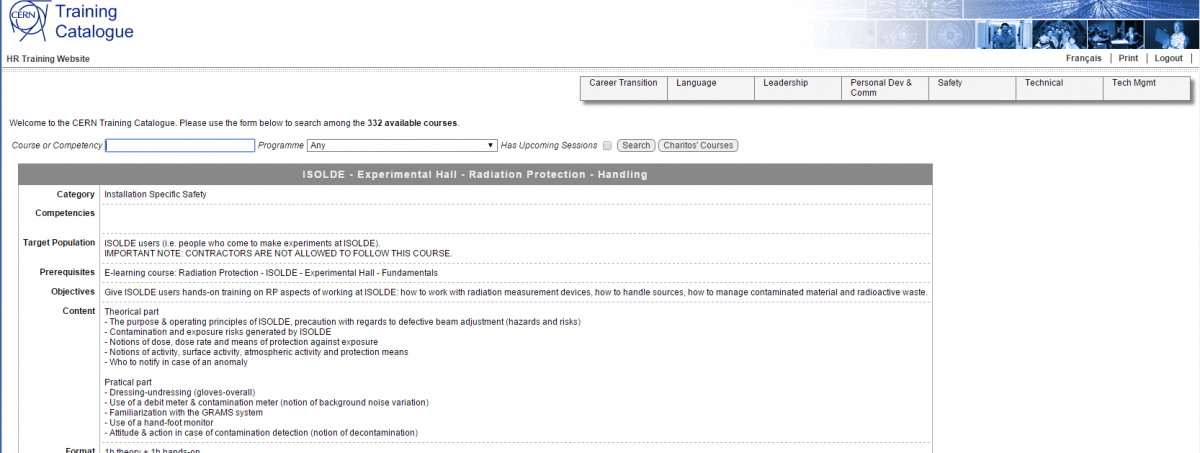ISOLDE offers safety training courses
One of the safety challenges faced by the PH Department is how to provide safety training and raise awareness for the large number of users. Most of them visit CERN only for short periods of time, thus they often do not have the chance to attend one of the scheduled courses, because they are kept busy by their experiments. As part of this effort, many e-learning courses are provided on the HSE unit website.
Moreover, collaborators of experiments need to be informed about the issue of the conformity of their equipment with CERN rules (mechanical, electrical, etc). To prepare them before their arrival at CERN, a number of relevant documents have, and will be, released, explaining safety regulations and how they apply to different issues as well as providing some examples of bad and good practice.
ISOLDE is an example of a facility where many guest scientists perform experiments/come for experiments for only a short period of time. There is a need, therefore, to provide short-duration, regular, relevant and tailored safety training courses. To address this issue, the DGS-RP group has collaborated closely with the HSE training unit and with Magdalena Kowalska, ISOLDE GLIMOS on an ISOLDE-tailored course on radiation safety. Another example is the 3-day electrical “habilitation” for ISOLDE local physicists, with already 3 sessions organized in the last 12 months. Both modules proved to be a success, and the organisers are quite satisfied with the response and feedback they have received so far. There is also close collaboration with the PH safety office and the HSE unit on the preparation of an electrical safety awareness course for ISOLDE short-term users.
![]()
When we ask Mark Hatch (Departmental Safety Officer of the PH Department) about the possibility of offering more e-learning courses in the future, he points out the difficulties of this type of training; mainly the fact that one can easily avoid paying attention to the lesson and ultimately fail to educate oneself about safety issues. However, as classroom courses run throughout the year, it is difficult for visiting scientists to participate. Aware of these difficulties, Magdalena Kowalska has collaborated with the HSE Unit to condense radiation and electrical safety trainings into a package that runs half a day, on a regular basis, and thus enables participation and actual acquisition of knowledge for all ISOLDE users coming for experiments.


The new courses take place in the new Safety Training Centre in Prevessin. A small classroom has been set up for the radiation protection course, where students can use some of the radiation detection instruments and gain hands-on experience. The demonstrations for the electrical course will be also installed there. Mark Hatch points out that “ISOLDE is working hard to develop awareness on safety issues, and we are quite happy to see that people have welcomed this initiative,” he continues: “we may offer similar courses to other facilities once they have proven their use at ISOLDE.”
